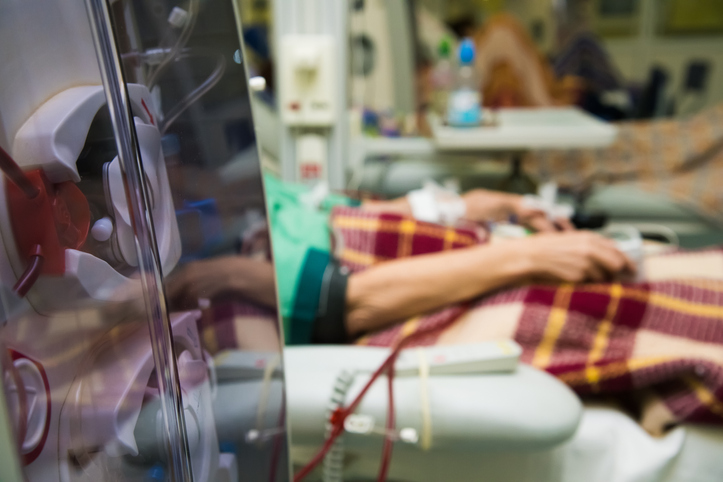At 87, Joanne Frost is one of the estimated 80,000 Californians who get dialysis because of damaged kidneys. That means that three times a week, she goes to a clinic and gets hooked up to a machine that cleans waste material from her blood, the machine doing the work of what healthy kidneys would do.
Each dialysis session, which lasts between three and four hours, leaves Frost feeling exhausted.
"It really tires you," she says. "I just sleep all the rest of the day. I just ... I'm really tired. I’ve been drained."
But for people like Frost, with serious kidney problems, not getting dialysis isn’t an option.
"If I can't be attached to that machine every three days, I'll die. That's it," she said.

Into this life-and-death treatment comes Proposition 29 on the state’s November ballot, a measure that’s about health care profits, union and corporate clout — and kidneys. If passed, the measure would require the state’s more than 600 licensed dialysis clinics to have physicians or nurse practitioners on staff, along with dialysis technicians.
"The heart and soul of this is we're going to add a clinician to the dialysis," said David Miller, research director of SEIU-United Healthcare Workers, the labor union that put Proposition 29 on the ballot. "We think it's incredibly important. We think there's millions of bad incidents of quality of care in dialysis clinics, and we think adding a clinician or an MD to the clinic would help resolve some of the poor care. So we think it's very important in terms of improving patient quality, and to help the clinics adhere to their own clinical policies that they are currently violating millions of times over the last several years."
But California’s powerful dialysis industry has a very different take. It argues that the state’s dialysis clinics are already safe and well-staffed, and that the cost of adding more personnel would force the industry to make cuts and close clinics.
Proposition 29, the dialysis industry contends, is really about hardball union tactics to intimidate the industry, not about protecting dialysis patients’ lives.

